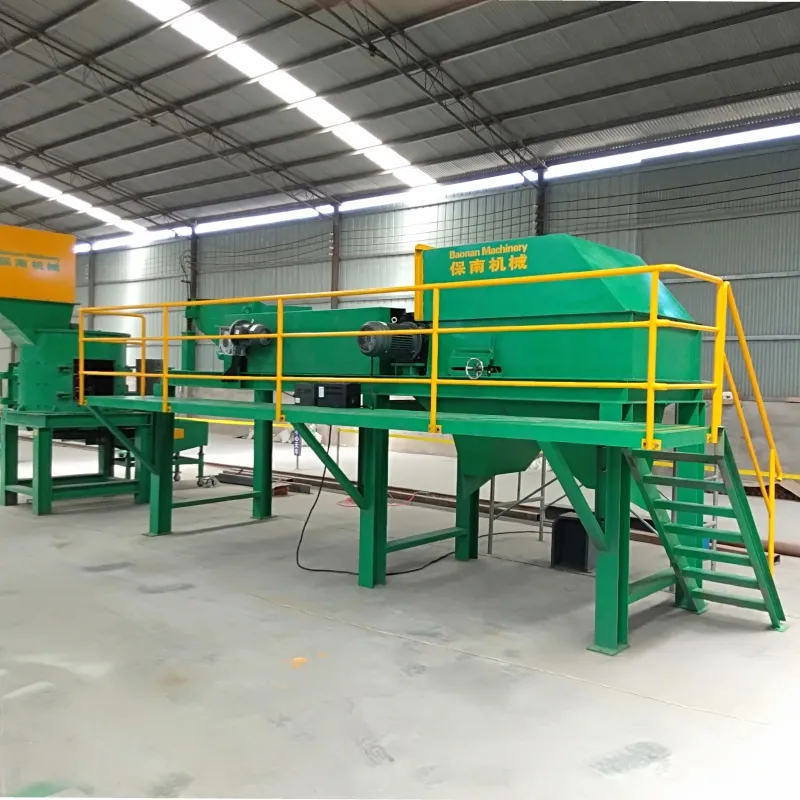
10 月 . 21, 2024 04:23 Back to list
The Role of Hammer Crushers in Cement Production
In the world of cement manufacturing, the use of crushing equipment plays a vital role in the initial stages of the production process. Among the various types of crushers, the hammer crusher stands out as a popular choice for its efficiency and effectiveness in breaking down raw materials. This article explores the significance of hammer crushers in cement plants, focusing on their operational principles, advantages, and applications.
Operational Principles
Hammer crushers operate on the principle of impact force. The main working part of a hammer crusher is the rotor, which is equipped with several hammers. As the rotor spins at high speeds, the hammers strike and crush the incoming material, which is usually limestone or other raw materials. This crushing process typically involves multiple stages the material first undergoes a primary crushing process, followed by refinements through subsequent impacts and reductions in size.
The crushed material then passes through a screen that determines the final size of the output, ensuring that only particles of a desired size make it further down the production line. If the particles are too large, they are redirected back into the crushing chamber for further processing.
Advantages of Hammer Crushers
1. High Efficiency Hammer crushers are renowned for their high throughput capabilities. They can process large quantities of material quickly by employing a straightforward and efficient crushing mechanism. This efficiency aids in maintaining a steady supply of crushed material, which is crucial for continuous cement production.
2. Versatility One of the greatest advantages of hammer crushers is their ability to handle various materials beyond limestone. They can efficiently crush different types of ores, coal, gypsum, and other minerals, making them a versatile choice in cement plants where multiple raw materials may be required.

3. Low Operational Costs Hammer crushers have relatively low maintenance and operational costs. Their simple design minimizes the need for complex parts, making them easier to maintain. Additionally, their efficiency in power consumption contributes to lower operational expenses, leading to an overall decrease in production costs.
4. Granularity Control The adjustable screens allow operators to control the granularity of the output material, ensuring that the crushed material meets specific requirements. This adaptability is essential for producing high-quality cement and optimizing subsequent processing stages.
Applications in Cement Plants
In cement production, hammer crushers are primarily utilized for the preliminary crushing of raw materials. The breakdown of limestone, clay, and other auxiliary materials is essential for creating the raw mix that will eventually be heated and processed in the kiln. The consistency in size and quality of these raw materials directly impacts the efficiency and quality of the final cement product.
Furthermore, hammer crushers may also be employed in the processing of byproducts in cement plants. For example, they can help crush recycled materials, which contribute to sustainable cement production practices.
Conclusion
In conclusion, hammer crushers play an indispensable role in cement manufacturing, contributing significantly to the efficiency and effectiveness of the production process. Their operational principles, advantages, and versatile applications make them a pragmatic choice for cement plants. As the industry continues to evolve and seek more efficient and sustainable methods of production, the reliance on equipment like hammer crushers will undoubtedly remain a fundamental aspect of modern cement operations. The ongoing innovation in crusher technology will likely enhance their performance even further, driving improved outcomes in the cement production landscape.
Latest news
Unveiling the Power of Eddy Current Separator
NewsSep.25,2024
Transform Your Home Recyclin:home metal shredder
NewsSep.25,2024
The Future of Waste Management with Recycling Line Picker
NewsSep.25,2024
The Benefits of a Metal Recycling Plant
NewsSep.25,2024
Revolutionize Material Separation with Onwang Technology
NewsSep.25,2024
Innovative Waste Management: Unveiling the MSW Sorting Plant
NewsSep.25,2024